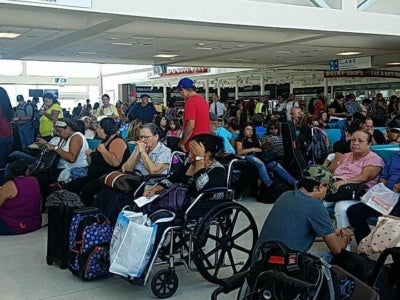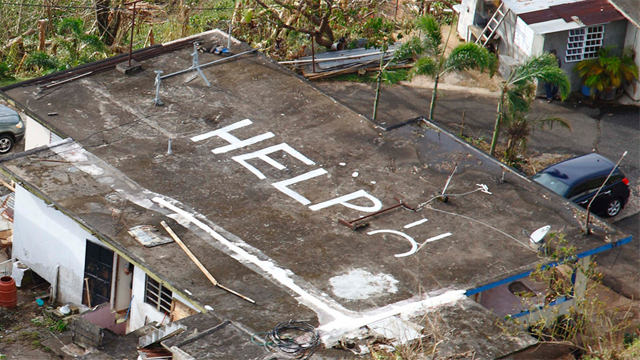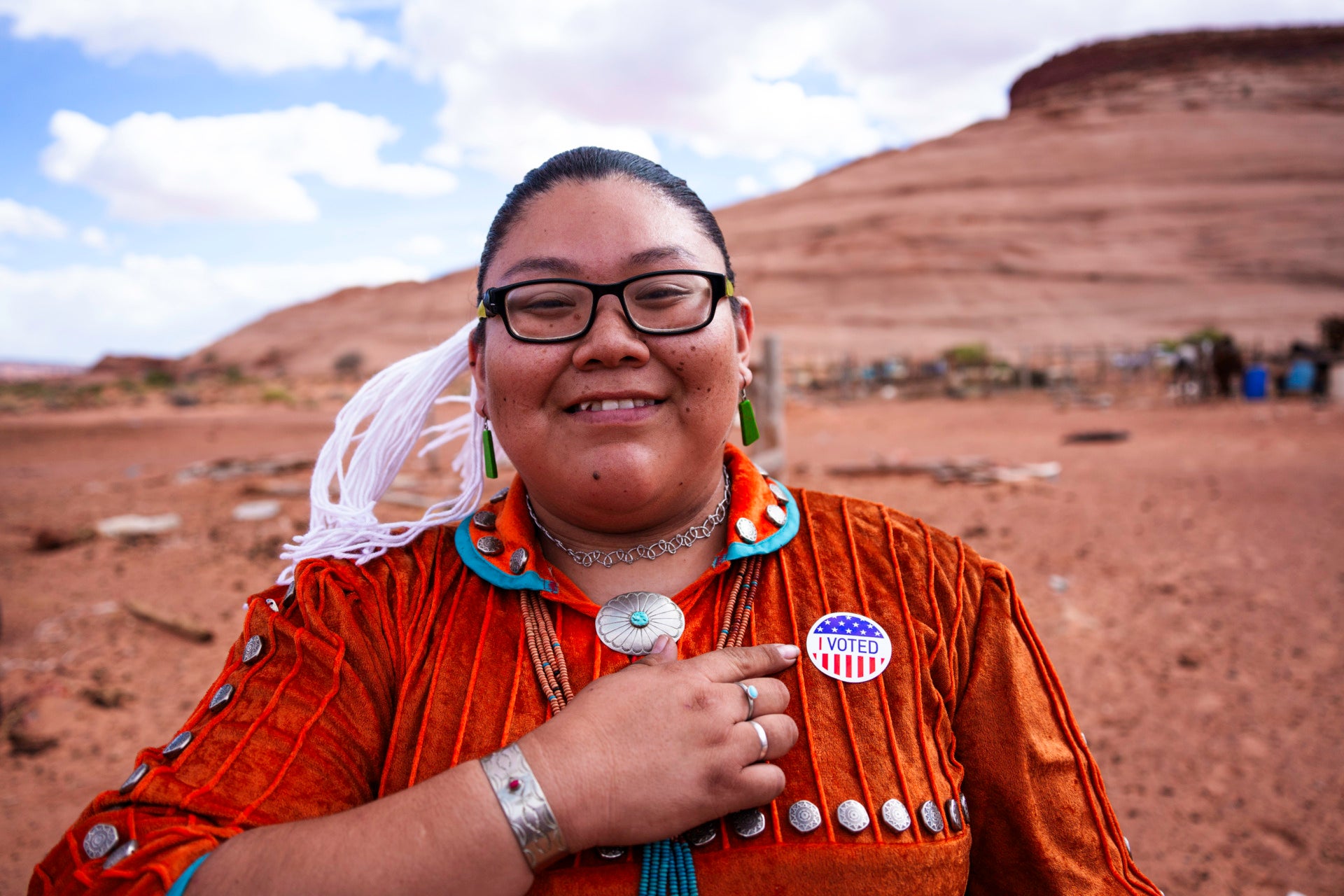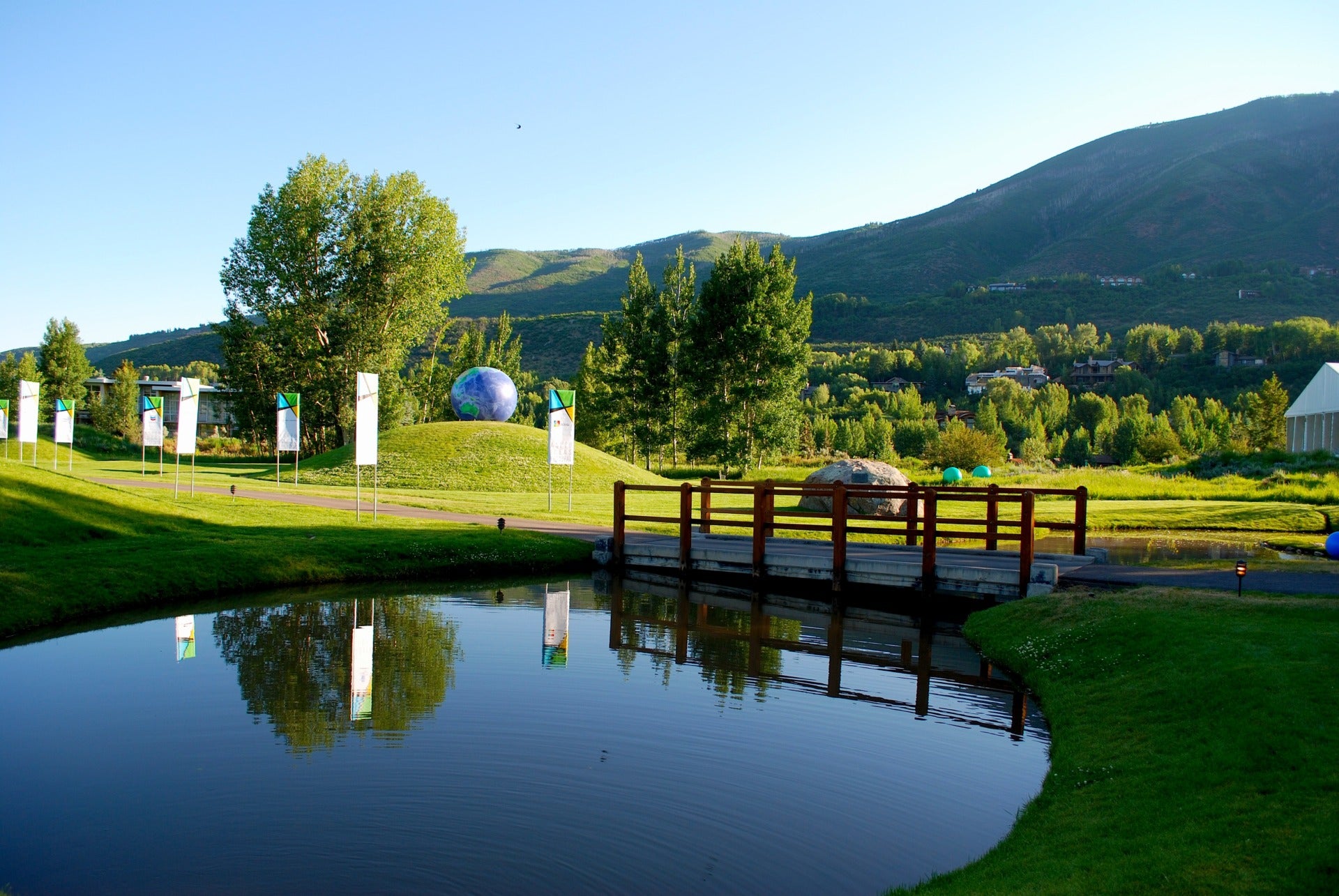A full two weeks after Hurricane Maria hit, I was finally able to get in touch with some members of my family living in Puerto Rico. Communications by phone were, and still are, impossible. We managed to connect sporadically through Facebook messenger, which has been the only lifeline for many. They are able to get infrequent and slow connections to the internet and from time to time post updates, which allowed for some (delayed) communication.
I learned that my cousin Teresa was desperately trying to cobble together the three full sessions of dialysis her mom, my distant aunt, requires every week. Dialysis centers have been rationing due to a shortage of the diesel needed to power the centers, so Teresa was taking her mom from clinic to clinic to try and get the needed treatments. Even when she was able to get treatment, her sessions were shorter than what she needed. None of the generators or supplies at hospitals or clinics were set up to respond to a full electrical and communications collapse. They certainly weren’t prepared to be running on generators for over a month, let alone the projected three to five months predicted until the electrical grid is up and running again.

My aunt is just one of many American citizens facing life-threatening hardships in the wake of Hurricane Maria. Puerto Rico is still far from normalized and vitally needs emergency assistance, along with the long-haul investments in its reconstruction.
To help my aunt get her necessary dialysis treatments I called the Red Cross, the Puerto Rico help line in DC, an assistance line to track down family members in Puerto Rico, and FEMA. I only got recordings and received no responses to the messages I left. Desperate, I finally posted my own call for help on Facebook. I was amazed by the responses I got, I could barely keep up with them all: people with connections to the Coast Guard, government officials in DC and in Puerto Rico, a private plane bringing in emergency supplies and returning with sick passengers, and recommendations for getting my aunt on the USNS Comfort, a US Naval hospital ship sent to assist in relief efforts.
But time was running out. My cousin was told by her dialysis center that her mom was among the top ten neediest cases among some 90 patients. One person on that list had already died. The next day, I found out that my aunt ended up in the hospital with fluid in her lungs and was misdiagnosed with asthma. Alas, that wasn’t enough for hospital staff to send her to the USNS Comfort. I have since learned that, even if they had wanted to, many hospital staff didn’t know how to contact the ship.
Meanwhile, my family was running out of potable water and didn’t know where or how to get it. All the stores were sold out. I called a friend who called a friend and a few cases of water were reserved for them at a store, but that was a temporary solution. Another friend whose husband is in the coast guard offered to check on my aunt. Two days later they brought food and more water — all of this organized and coordinated from diaspora Puerto Ricans stateside, via Facebook, messenger and text, to people on the island who could help.
Seeing my cousin’s increasing desperation, I asked her what I could do. Did she want me to try to get my aunt the services she needed in Puerto Rico, try to get her on the USNS Comfort, or get her off the island? It became clear that the situation was too dire for her to stay in Puerto Rico — she asked me to get “Mami” out where she could get better care.
Once again with the help of someone through Facebook, I managed to get my aunt a flight from San Juan to Portland, Oregon, and not for the $2,000 and up some people have paid. Getting her ready and on the flight was no easy task. It had to be coordinated around her dialysis treatments. She needed a litany of doctors orders, a clinic that could take her state-side, and a valid ID to travel. All of this took another several days. This is something not everyone has the resources to pull together.
More than a month since Hurricane Maria hit, these are the other stories I’m hearing on the ground. The death count of dialysis patients from my aunt’s center is now six, possibly more. These are the ones my cousin knows about because she is familiar with them or their family members. I asked my family to search for another elderly cousin whom we hadn’t heard from.. When they found her they learned that she had been waiting for hours every day in multiple lines for basic necessities — water and food.
There was talk of the family pharmacy having to close due to shortages of medicine. Five of their pharmacists have already left for the mainland. A bridge collapse has severely limited the ability to get around town. Traffic and lines are terrible. Just getting the basics can take all day long, and there’s a curfew that starts as soon as it gets dark.
People who were civil in the early days after the hurricane, sharing food and resources, are starting to lose patience. Diseases are starting to break out and people are scared. They have seen little improvements a full month after the hurricane. Most communications are still down, electricity is still out throughout the majority of the island, and it’s expected to stay this way for months.
My aunt is in Portland, Oregon right now, indefinitely. Though she is terribly homesick and worried about the family she left behind, conditions are nowhere near stable enough for her to go home. In the meantime, she is living with my mom, getting regular full dialysis treatments and three square meals a day. It’s hard to imagine being forced to move 3,700 miles away from your home, your grandchildren, and everything you know and love in order to get the basic medical services you need to stay alive. But my aunt is one of the lucky ones. There are many more in Puerto Rico who are not so fortunate. My heart breaks for them every day as I imagine what they are going through. Yes, we need to rebuild Puerto Rico, and hopefully we will rebuild better, but today people are dying. Puerto Rico, an island of American citizens, is still in a state of emergency and we cannot turn our backs on her now.


